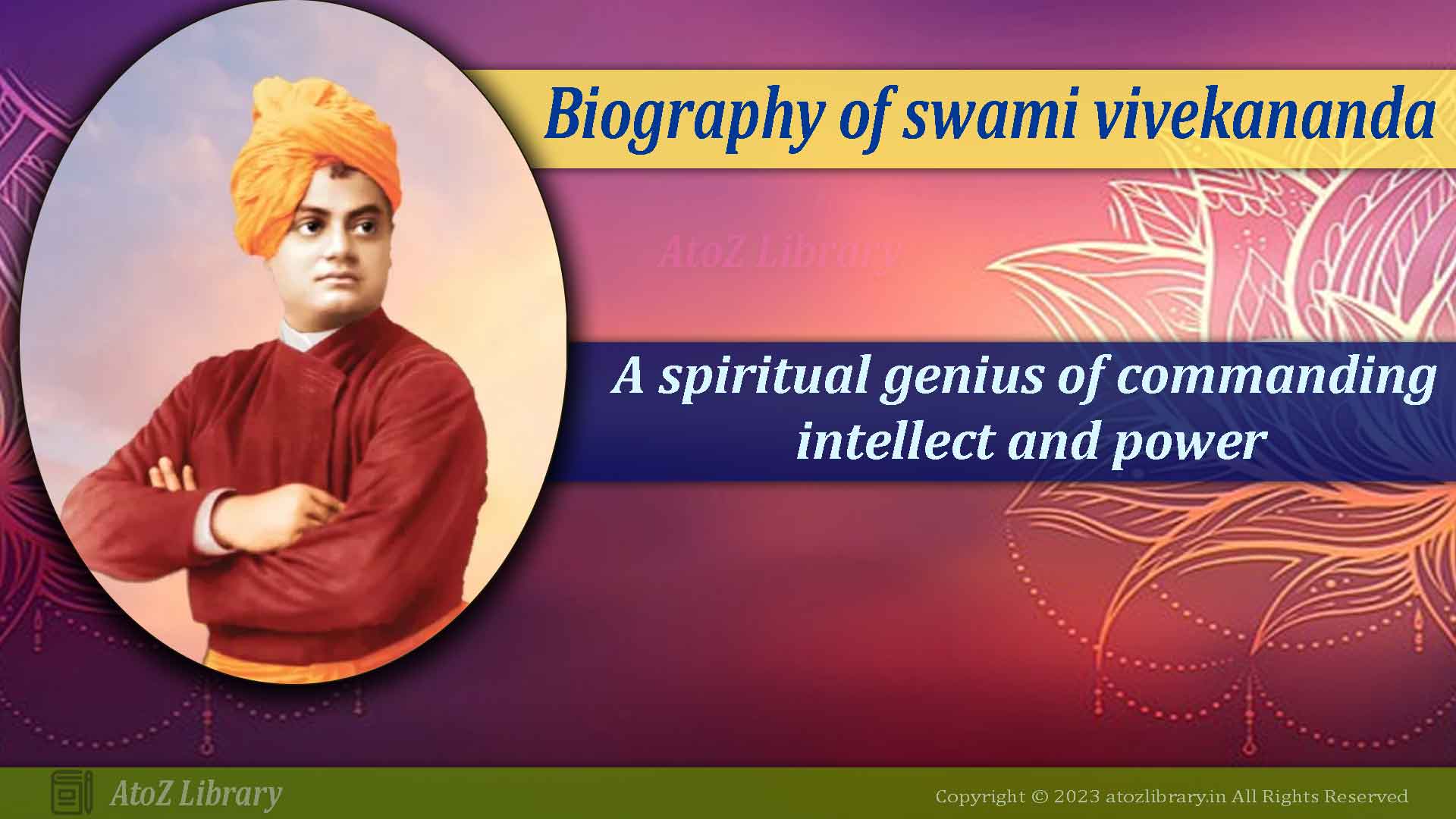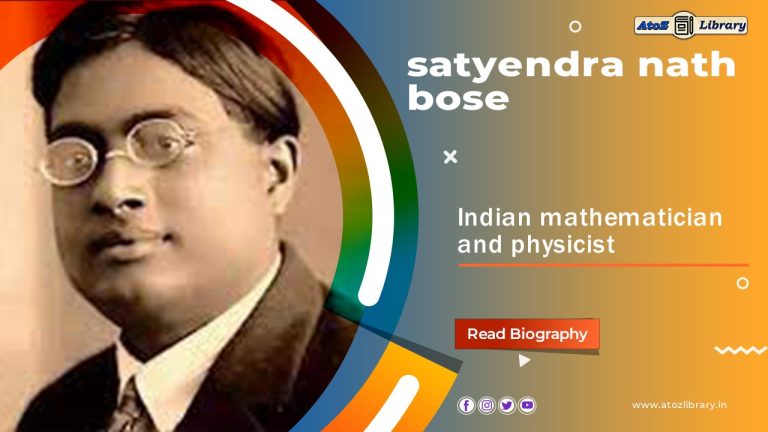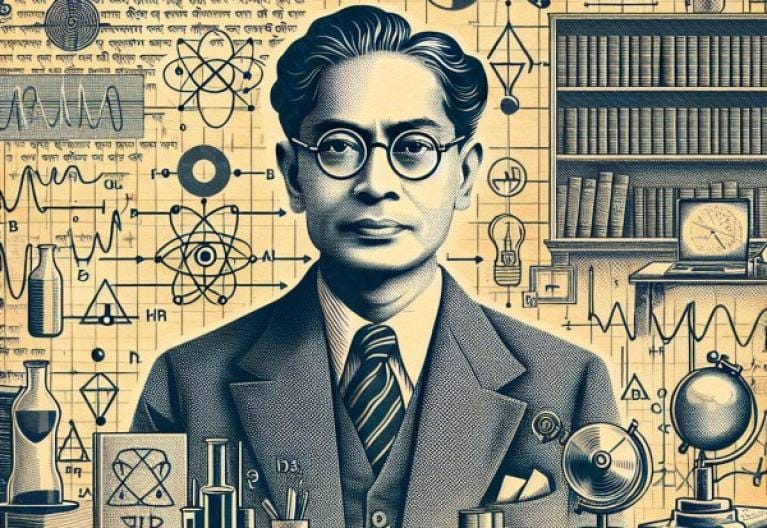Introduction
In This Short Biography Of Swami Vivekananda we will Cover Some Important Topics In Short. Swami Vivekananda was a Hindu monk and chief disciple of the saint Ramakrishna(19th-century). Born in Calcutta, India in 1863, Vivekananda played a key role in the introduction of Hinduism and Indian spirituality to the Western world.
He was a brilliant speaker and a prolific writer, and his speeches and writings continue to inspire millions of people around the world. He is best known for his inspiring speeches at the Parliament of the World’s Religions in Chicago in 1893, where he represented Hinduism and spoke on the unity of religions. Throughout his life, he emphasized the importance of education, self-reliance, and service to others, and he remains a beloved figure in India and beyond to this day.
Early Life And Education Of Swami Vivekananda
Swami Vivekananda was born as Narendra Nath Datta in Calcutta, India. He came from a well-educated and affluent family and received a strong education in a variety of subjects, including history, literature, and philosophy. Despite his privileged background, however, he struggled with questions of purpose and meaning and felt unfulfilled by the materialistic life he saw around him.
In 1881, he met Ramakrishna, a saintly figure who would become his spiritual teacher and mentor. Under Ramakrishna’s guidance, Vivekananda underwent a profound spiritual transformation and eventually took monastic vows, becoming a wandering monk. After Ramakrishna’s death, he traveled extensively throughout India, seeking to understand the country’s ancient spiritual traditions and spreading the teachings of Ramakrishna.
Vivekananda was a brilliant speaker and a gifted teacher, and he quickly gained a following. In 1893, he was selected to represent Hinduism at the Parliament of the World’s Religions in Chicago, where he delivered several powerful speeches that were well received by the audience. His speeches helped to introduce Hinduism and Indian spirituality to the Western world and established him as a major religious and cultural leader.
Initial spiritual forays of Swami Vivekananda
Swami Vivekananda’s initial spiritual forays were marked by a search for answers to life’s most fundamental questions. Despite coming from a privileged background and receiving a strong education, he felt unfulfilled by the materialistic life he saw around him. In search of a deeper understanding of the world, he began to explore different philosophical and religious traditions, including Christianity and Islam.
It was his meeting with the saintly figure Ramakrishna that truly set him on the path to spiritual enlightenment. Under Ramakrishna’s guidance, Vivekananda underwent a profound transformation, discovering a deep connection to the divine within himself. This experience helped him to understand the unity of all religions and the importance of meditation and spiritual practices in achieving self-realization.
After Ramakrishna’s death, Swami Vivekananda continued to deepen his spiritual understanding through extensive travels and intensive spiritual practices. He eventually took monastic vows and became a wandering monk, spreading the teachings of Ramakrishna and promoting the idea of a universal religion that transcends cultural and sectarian divides. His initial spiritual forays set the foundation for his later work and helped establish him as a major religious and cultural leader.
Founding of Ramakrishna Math
Swami Vivekananda founded the Ramakrishna Math in 1897, following the death of his spiritual teacher, Ramakrishna. The Ramakrishna Math was established as a monastic order, with the aim of spreading Ramakrishna’s teachings and promoting the idea of a universal religion that transcends cultural and sectarian divides.
Vivekananda saw the Ramakrishna Math as a way to bring together people from all walks of life and help them understand the importance of spirituality and self-realization. The Math became a hub of spiritual and cultural activity, attracting followers from India and around the world. In addition to promoting spiritual growth, the Ramakrishna Math also emphasized the importance of education, self-reliance, and service to others, and it became involved in a variety of social and humanitarian initiatives.
Today, the Ramakrishna Math is a global organization with centers and monasteries in countries around the world. It continues to promote the teachings of Ramakrishna and Swami Vivekananda and is an important part of the spiritual and cultural heritage of India.
Swami Vivekananda in Parliament of the World’s Religions
Swami Vivekananda’s participation in the Parliament of the World’s Religions, held in Chicago in 1893, was a defining moment in his life and career. The Parliament was the first international gathering of representatives of different religions and spiritual traditions, and it was an opportunity for leaders and scholars from around the world to come together and exchange ideas.
Swami Vivekananda was selected to represent Hinduism at the Parliament, and his speeches there were among the most memorable and impactful of the event. He delivered several powerful and inspiring speeches, which helped to introduce Hinduism and Indian spirituality to the Western world. In his speeches, he emphasized the unity of all religions, the importance of service to others, and the potential for spirituality to bring about positive change in the world.
Swami Vivekananda’s participation in the Parliament of the World’s Religions was a turning point in his life and career. His speeches helped to establish him as a major religious and cultural leader, and they continue to inspire people around the world who seek to make a difference in the world. The Parliament of the World’s Religions was a landmark event in the history of spirituality and religion, and Swami Vivekananda’s role in it has ensured his place in the annals of history.
Lecture Tours in the UK and US
Swami Vivekananda’s lecture tours in the United Kingdom and the United States were a major turning point in his life and career. In 1893, he was selected to represent Hinduism at the Parliament of the World’s Religions in Chicago, where he delivered several powerful and inspiring speeches. These speeches helped to introduce Hinduism and Indian spirituality to the Western world and established him as a major religious and cultural leader.
Following the Parliament, Swami Vivekananda embarked on a series of lecture tours in the United Kingdom and the United States, where he continued to spread the teachings of Ramakrishna and promote the idea of a universal religion that transcends cultural and sectarian divides. His speeches were well received by audiences and helped to build a following for his teachings.
During these tours, Swami Vivekananda also met and interacted with a wide range of people, including intellectuals, spiritual leaders, and politicians. He used these opportunities to share his insights and perspectives on spirituality, religion, and culture, and to build bridges between different communities and cultures. His lecture tours in the UK and US were a testament to his charisma, his speaking abilities, and his unwavering commitment to his beliefs. They played a critical role in shaping his legacy and inspiring future generations.
Swami Vivekananda As A Social Reformer
Swami Vivekananda was a major social reformer and his teachings had a significant impact on Indian society. He emphasized the importance of education, self-reliance, and service to others, and encouraged people to work towards the betterment of their communities. He also spoke out against the caste system, which he saw as a major impediment to social progress, and advocated for the rights of women and the marginalized.
In addition to his teachings, Swami Vivekananda was also involved in a number of social initiatives. For example, he helped to establish schools, orphanages, and hospitals in India, and was involved in providing relief to those affected by natural disasters and other crises. He also spoke out against religious fundamentalism and advocated for a more tolerant and inclusive approach to spirituality.
Swami Vivekananda’s ideas and example had a major impact on Indian society, and he continues to be remembered as a major figure in India’s social and cultural history. He inspired a generation of activists and leaders, who sought to bring about positive change in their communities and the world. His legacy continues to live on, and his teachings continue to inspire people around the world who seek to make a difference in the world.
Death Of Swami Vivekananda
Swami Vivekananda died on July 4, 1902, at the age of 39. The exact cause of his death is unknown, but it is believed that he may have died from complications related to his intense spiritual practices and severe fasting.
Swami Vivekananda’s death was a great loss to the spiritual and cultural community, and his followers mourned his passing. However, his teachings and legacy lived on, and his ideas continue to inspire people around the world who seek to make a positive difference in the world.
Today, Swami Vivekananda is remembered as one of India’s greatest spiritual leaders and social reformers. His teachings continue to be widely read and studied, and his ideas continue to influence people who seek to lead a spiritual life and make a positive impact on the world. Swami Vivekananda’s legacy continues to live on, and he remains an important figure in India’s cultural and spiritual heritage.
Teaching Of Swami Vivekananda
Swami Vivekananda was a major spiritual teacher and leader in India, and his teachings had a profound impact on the spiritual and cultural landscape of the country. Some of the key teachings of Swami Vivekananda include:
- Unity of all religions: Swami Vivekananda believed that all religions are expressions of the same divine reality and that they lead to the same ultimate goal. He emphasized the importance of religious tolerance and mutual respect among different faith traditions.
- Service to others: Swami Vivekananda taught that the path to spiritual enlightenment involves serving others and working for the betterment of humanity. He encouraged people to lead a life of service and to work towards the improvement of their communities.
- Potential for individual growth: Swami Vivekananda believed that each individual has immense potential for growth and self-realization, and that spirituality is the key to unlocking that potential. He encouraged people to embrace spirituality and to seek self-knowledge and self-improvement.
- Yoga and meditation: Swami Vivekananda emphasized the importance of yoga and meditation in the spiritual journey, and he taught that these practices can help individuals to achieve inner peace and greater self-awareness.
- Education and self-reliance: Swami Vivekananda believed that education is essential for personal growth and social progress, and he encouraged people to become self-reliant and to take responsibility for their own lives.
These teachings have inspired millions of people around the world, and they continue to influence people who seek to lead a spiritual life and make a positive impact on the world.





